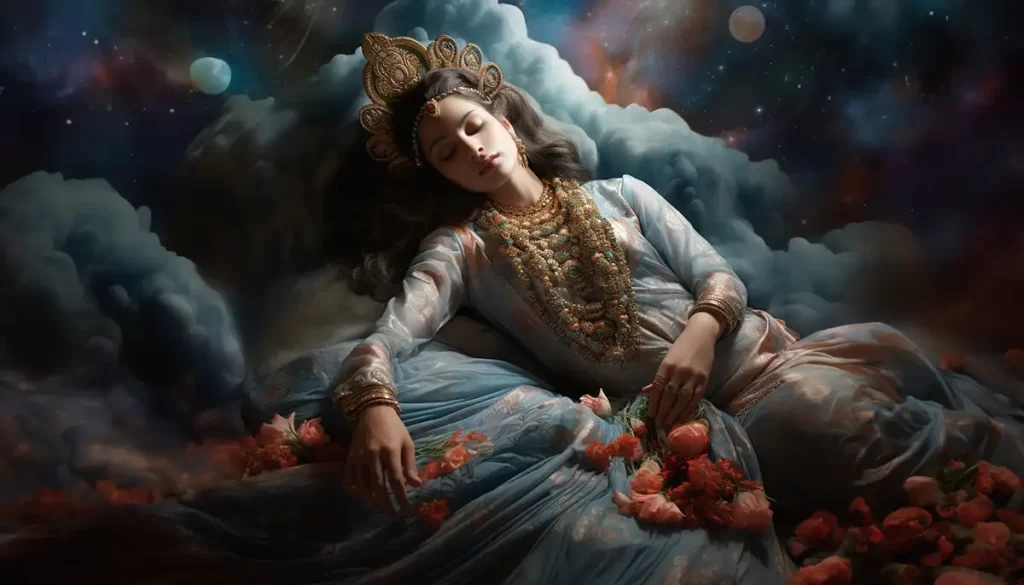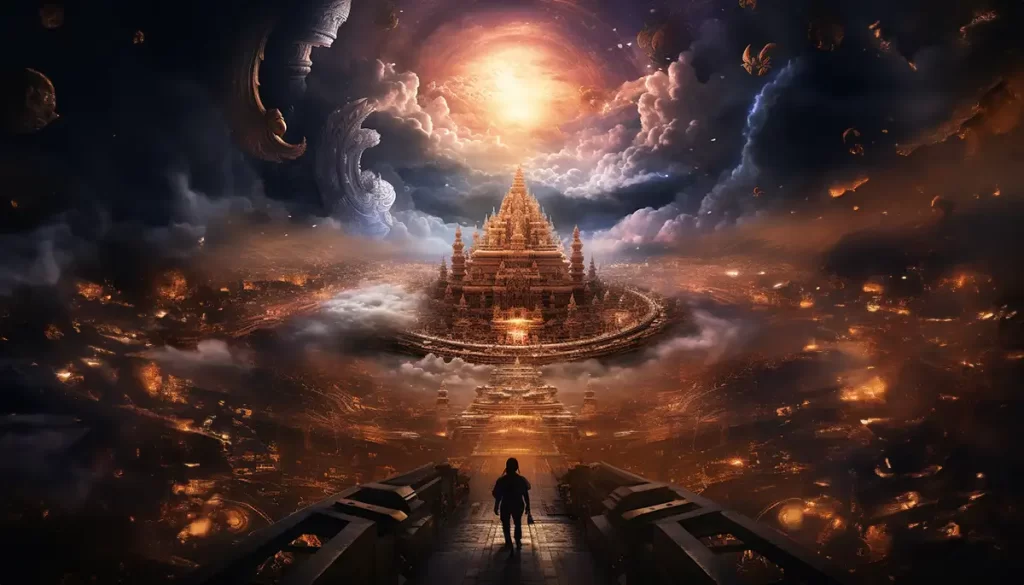Introduction to Dreams in Hinduism
In Hinduism, dreams aren’t just fleeting thoughts that visit you in the night—they’re like whispers from the universe, tiny threads that connect the mortal world to the divine. Picture this: you’re drifting off to sleep, and suddenly, you’re in a vivid dream where gods, animals, and symbols play out before your eyes.
In Hindu culture, these dreams, referred to as “Dreams in Hinduism,” are seen as messages, gifts from the gods, or glimpses into your soul’s journey. They’re sacred, powerful, and, sometimes, even prophetic.
Dreams have always held a special place in Hinduism, guiding people through life’s twists and turns, helping them understand their karma, and even revealing their destiny.
Whether you dream of a deity offering blessings or find yourself in a scene that feels oddly significant, there’s a good chance it means something more profound than you might think.
Navigate to What Matters
Symbolism and Common Dream Interpretations in Hinduism
Let’s talk about symbolism, because in Hinduism, dreams are rich with it. Everything you see in a dream—from a snake to a stream of water—carries weight, almost like each image is trying to tell you something important.
For instance, if you dream of a snake, it’s not just a snake. It might be a sign of kundalini energy, the spiritual force that lies coiled at the base of your spine, waiting to rise and awaken your full potential. A cow, revered as sacred in Hinduism, might represent purity, prosperity, or the nurturing aspect of the divine.
And then there’s the tiger—a powerful symbol of strength and courage, or maybe a warning that there’s a challenge coming your way that you’ll need to face with fierce resolve.
Dreams of deities? Now, that’s something special. Imagine seeing Lord Shiva, the great destroyer and transformer, in your dreams. It could mean big changes are on the horizon, a spiritual shake-up that’s going to lead you to something new.
Or maybe you dream of Goddess Lakshmi, showering you with blessings—now that’s a sign of good fortune, of prosperity making its way into your life.
And let’s not forget natural elements like water and fire. Calm, clear water might suggest peace and spiritual clarity, like a still lake reflecting the sky. But turbulent water? That’s a different story—emotional upheaval, perhaps, or challenges lurking beneath the surface.
Fire, on the other hand, can be both a purifying force and a symbol of divine energy, a metaphorical cleansing that burns away the old to make way for the new.
In Hindu tradition, it’s crucial to figure out whether a dream is auspicious or inauspicious. An auspicious dream is like a green light from the universe, signaling good things ahead. But an inauspicious one? That might be a gentle (or not-so-gentle) nudge to pay attention, to prepare for obstacles or to rethink your path.
Dreams in Hindu Scriptures and Mythology
Hindu scriptures and mythology are teeming with dreams that have shaped religious thought and tradition for thousands of years. These aren’t just bedtime stories—they’re powerful narratives that have influenced how people understand the world and their place in it.
In the Vedas, which are some of the oldest sacred texts in Hinduism, dreams are mentioned as tools for gaining insight into the universe and the nature of the self. The Upanishads go even deeper, exploring dreams as reflections of the soul’s journey through different states of consciousness.
Here, dreams are seen as peeks into a higher reality, where truths are revealed that might be hidden from your waking mind.
Take the Mahabharata, for instance. Before the great war of Kurukshetra, Lord Krishna has a dream that symbolizes the destruction and rebirth that the war would bring—a powerful foreshadowing of the epic events to come. In the Ramayana, Lord Rama’s dreams often serve as divine guidance, pointing him in the right direction at crucial moments in his life.
These dreams aren’t just figments of imagination; they’re teachings passed down through generations, reinforcing the belief that dreams are a direct line to the divine.



